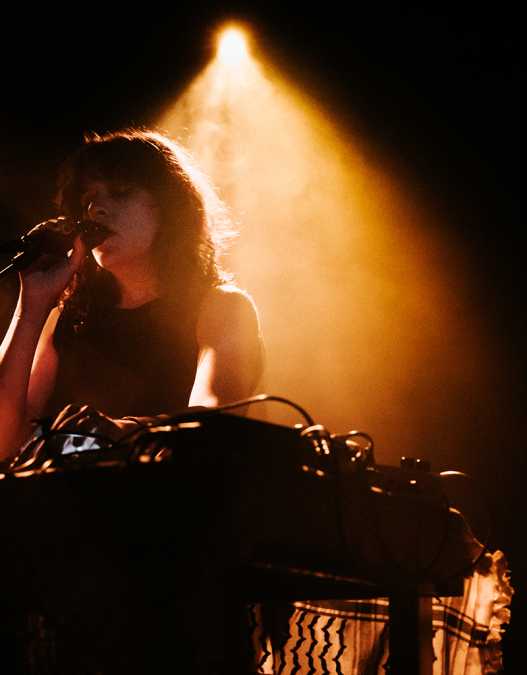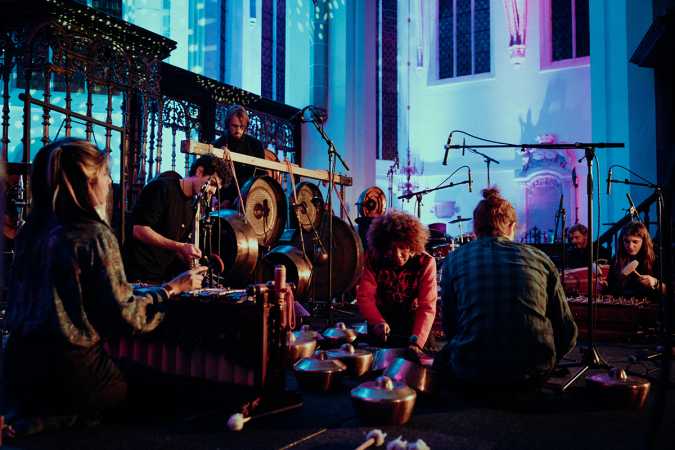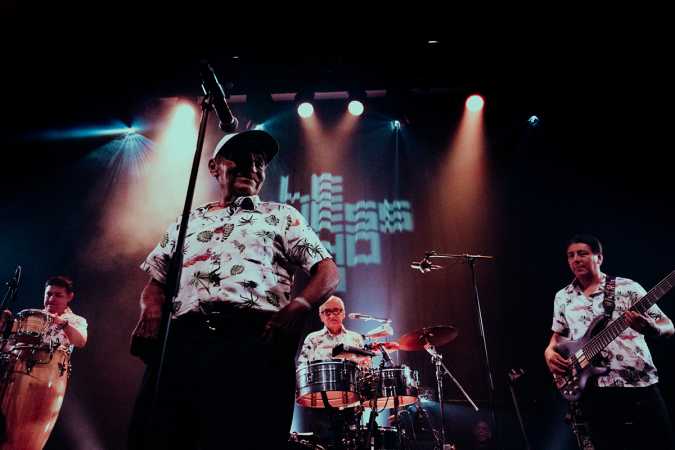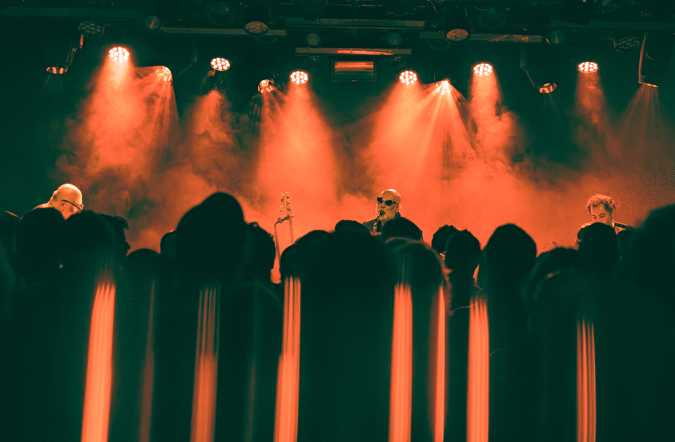VPRO Vrije Geluiden were present at Le Guess Who? 2022 to capture several sessions with festival artists in TivoliVredenburg. Over the next couple of weeks, these will go online every Sunday.
The Master Musicians of Jajouka led by Bachir Attar
Jajouka is the name of a hidden village in the Jebala foothills of northern Morocco. Here, The Master Musicians are a collective of Jbala Sufi trance makers who are committed to creating a contemporary representation of a century-old musical tradition. William Burroughs once called them “the four thousand year-old rock and roll band.” Indeed, their music is deeply hypnotic and earth-shatteringly intense.
Hatis Noit
Japanese vocal artist Hatis Noit performs songs from her debut album 'Aura', released earlier this year. When she was sixteen, she made a trek through Nepal and was inspired by female monks she heard singing religious chants. Her accomplished range is astonishingly self-taught, inspired by Gagaku — Japanese classical music — and operatic styles, Bulgarian and Gregorian chanting, to avant-garde and pop vocalists.
Širom
The music of Slovenian trio Širom is inhabited with imagination and craftsmanship, channeled through more than a dozen instruments (including a roll of tape, strings, drums and even lentils) and countless musical forms. They uncover a unique musical pendulum, swinging between folk sensibilities and contemporary, acoustic rock-style mode of brooding. The result is a grounded yet mystical sound.
Charlotte Adigéry & Bolis Pupul
Cultural appropriation, misogyny, racism, post-colonialism, and political correctness are not usually themes heard on the dance floor; but Charlotte Adigéry and Bolis Pupul rebel by inviting them in. The Ghent-based duo released their debut album 'Tropical Dancer' this year, revolving around emancipation through humour. "Thanks to 'Topical Dancer' I can free myself from all these issues and have fun at the same time," says the singer.
Noori & His Dorpa Band
Noori & His Dorpa Band released the revolutionary album 'Beja Power' this year. This sensational band hails from Port Sudan, a city on the Red Sea coast in eastern Sudan and the heart of the Beja culture. Noori was 18 when he crafted the tambo-guitar, a hybrid instrument that combined a tambour (a stringed lyre also known as the krar) with an electric guitar he found in a junkyard. With it, he envisioned keeping Beja music alive, something that was difficult in his home country of Sudan. Noori believes that bringing this music out into the world can “form the most potent act of resistance,” moving in lockstep with Beja activists’s ongoing cries for justice.
Romperayo
Romperayo is a musical journey through Colombian tropical folklore of the second half of the 20th century, a mischievous and modern interpretation of the up-tempo rhythms of “Descarga” and the psychedelic sounds of ’70s cumbia. Romperayo is distinguished by the prominence of the rhythm section, probably because the band was formed by the “capitán” of the new generation of Colombian percussionists: drummer Pedro Ojeda, who also plays in Los Pirañas, Palanca, CieloMama, Frente Cumbiero, Ondatrópica and Mucho Indio. By cleverly incorporating urban sounds and sampling techniques into the tropical music of the past decades, Romperayo embodies Colombia’s modern folklore scene.



